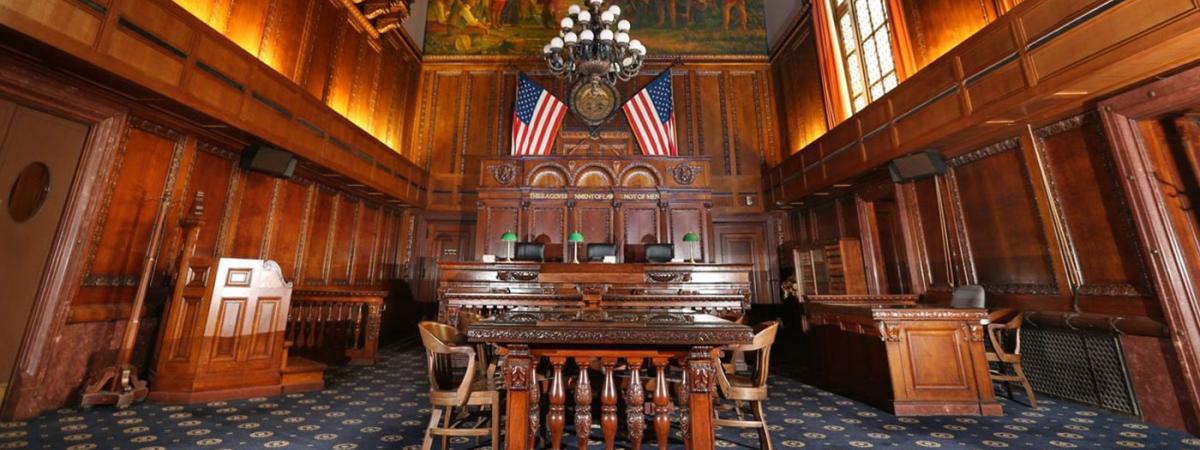Last year, Case Western Reserve University School of Law launched a new Appellate Litigation Clinic, which recently completed a marathon month of oral arguments in four criminal appeals.
The cases began last year, when students Chelsea Fletcher, Vito Giannola, Amanda Hudson, Renee Monzon, Emily Peterson, Geneva Ramirez, Rocco Screnci and Joe Shell briefed cases involving speedy-trial rights, grand-jury protections and the right of a defendant to withdraw a guilty plea upon discovering new evidence.
In normal times, the court of appeals would likely have set these cases for in-person oral argument in the fall. But one silver lining of the pandemic was the delay that pushed the arguments back until the start of spring semester when another group of students were ready to step into the virtual courtroom.
So just before the semester started, Professor Andrew Pollis solicited his new crop of students for four volunteers to deliver the arguments, and Caroline Ford, Josh Rheins, David Codispoti and Paul Willison rose eagerly to that challenge.
“Caroline, Josh, David and Paul immersed themselves in the cases even before classes began,” Pollis said. “They learned the issues quickly and worked tirelessly to prepare. They delivered practice argument after practice argument, honing their themes and adjusting their styles as they mastered the art of oral advocacy.”
And master it they did. Ford led the pack with a Zoom argument on Feb. 3, and Rheins, Codispoti and Willison kept up the pace until the last of the four on March 2. Shell has stayed involved, co-teaching the clinic with Pollis and dedicating hours of his time to help the oralists prepare.
The judges noticed the hard work: In every one of the arguments, the judges took the opportunity to express their gratitude for the quality of the briefing and the arguments.
Ford won her appeal and the case was reversed, clarifying an important speedy-trial issue that courts had handled inconsistently. Case Western Reserve’s clinic may win or lose the other appeals; time will tell. In addition to solid representation for clients, the students will enter the legal profession with appellate oral arguments already under their belts.
The Appellate Litigation Clinic is one of nine different clinics operated by the law school, which is ranked No. 9 in the nation in practical training. In fact, a banner in front of the school proclaims: “A National Leader in Experiential Education.”
“This past month, the Appellate Litigation Clinic students once again proved that those aren’t just words,” Pollis said.
For more information, contact Colin McEwen at colin.mcewen@case.edu.





